-
Posts
316 -
Joined
-
Last visited
-
Days Won
40
Content Type
Profiles
Forums
Gallery
Events
Articles
Blogs
Downloads
Community Map
Posts posted by V7#5b9
-
-
“Practicing 30 minutes each day is a recipe for success. Have you done your 30 today? Here are some tips for a great 30 minute Practice Routine. Learn all you can!” - Steve Krenz
-
 1
1
-
-
@Steve Krenz Hey Steve, I hope you don’t mind. Since the stickies get dismissed or will expire, and we may miss your “Guitar Video of the Day,” I thought I’d create a thread to collect them. I may not be online every single day, so anybody please feel free to add Steve’s current video to this thread.
Yesterday’s video was fun to watch. Jack and Brent were great. By the way, the guy on bass Roy Vogt has an excellent video course called “Teach Me Bass Guitar.”
-
 3
3
-
-
In case you don’t know yet or wonder about the blues theory, here’s a good explanation of this mini-tonality.
-
 1
1
-
-
Thought I’d spice up Griff’s Fretboard Diagram PDF with my own. If; in addition to the black, red and blue dots; you want to visualize the forms in terms of intervals like this:
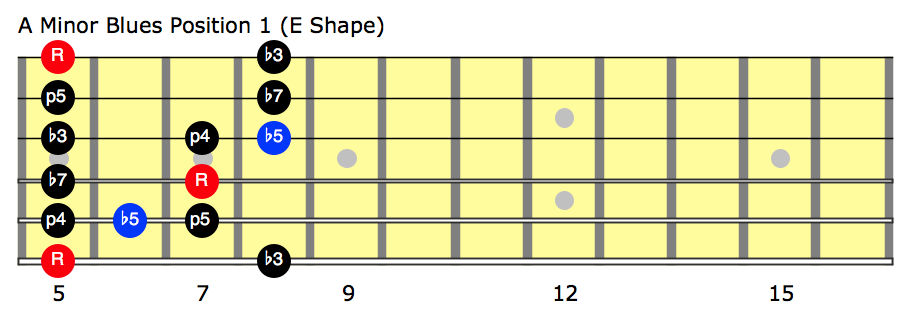
Feel free to download my two PDF files: Five Major Blues Forms.pdf Five Minor Blues Forms.pdf
-
 2
2
-
-
This is super cool! It comes from Griff Hamlin and is meant to be shared. Before you click the link, read the email from Griff that all BGU subscribers receive. This is for the benefit of non-subscribers.
“You may not know (or remember,) but there's a great tool I had made for you that you can use to learn your blues scales - all of them, inside and out. But before you go run off and try it, let me give you a suggestion... because this tool I have for you is very powerful - and that means you might need a little direction to get started.
 Now there's a video on the page that will define for you the "left facing" and "right facing" versions of scales, but here's my suggestion to get started.
Now there's a video on the page that will define for you the "left facing" and "right facing" versions of scales, but here's my suggestion to get started.
Set the 4 dropdowns like this:
Root Note: A (or whatever key you want) (don't leave it on random)
String: 6 (don't leave it as random)
Left/Right: Right
Major/Minor: Minor
Now hit "deal" and, of course, all the cards will turn over to be what you selected (since none of them are random, there's no surprise.)
Hit the "Hint" button and you'll see good old Box 1.
Change String: to 4, and you'll get Box 2 in the same key
Change String: to 2, and you'll get Box 3 in the same key
Change String: to 5, and you'll get Box 4
Change String: to 3, and you'll get Box 5
Wanna work a different key? Go through the same steps with a different key.
Think you've got every key down? Change the "Key" to random and test your skills.
It's super fun and a great way to work those scales so get to it. Check it out here and make sure to bookmark the page so you can come back to it (and if you dig it, share it with your friends.)”Now here’s the link to the TRAINING TOOL & VIDEO.
-
 2
2
-
-
18 minutes ago, Wim VD said:
I plan to do just that in the coming months. It will be easier from the recording perspective as I will be able to plug directly into my Zoom R24, without worrying about the background noise.
-
 2
2
-
-
Thanks Mark and Greg. I always appreciate kind words and constructive criticism even more so. By the way, my apologies if I miss and fail to respond to entries due to constraints of time.
-
@Wim VD Real cool Wim! I think I’ve heard it before. Well done!
-
@mark_h Your promo vid is really nice. As far as I’m concerned you played smoothly. Non-rigid timing gives it more feeling. Bum notes? What bum notes? You meant to play what you did, that’s it!
-
 1
1
-
-
Currently, my recording facilities are not favourable and I’m still focusing on practicing jazz etudes, but since the theme is fitting I thought I’d use my old recordings. This is really old stuff. I recorded those almost 5 years ago for a couple of initial monthly challenges. It’s kind of funny for me to listen to these amateurish attempts today. I really should take some time to rerecord them to find out if I’m still dying of laughter listening to them.
“Blowing In The Wind”
Bonus track “Yesterday” should probably stay home.
-
 6
6
-
-
12 hours ago, Popeye said:
Wayne Chase has a sense of humor......in amazon.com this book lists at $285.00.......REALLY!
@Popeye Hey Mike, you’ve been quiet lately. It’s good to hear from you again. Just to make it clear in case someone overlooks it. The book sells directly from the publisher for $47.95 including shipping. The PDF edition can be downloaded directly from the publisher for $19. You can check the amazon reviews, but you wouldn’t want to buy it there. The good thing is there’s enough free chapters for you to peruse online and form your own opinion. That is if you want to bother with it at all.
-
A brief rundown and demonstration of the key aspects of stylistic blues guitar soloing and techniques by Griff Hamlin.
-
 4
4
-
 3
3
-
-
This is something I had mentioned on the old forum. The resource is rather unconventional as it doesn’t use musical notation at all, but it is remarkable in the way it covers its contents. It makes you think and sometimes re-examine your approach to music. Things that I was vaguely aware of became much clearer. I also found new things that had never been explained in any other resources I’ve come across.
Having said that, you may find some small inaccuracies or sometimes even disagree with the author. For instance, his circular harmonic scale chord progression chart is very useful, but he claims that a lot of musicians mistakenly think that the Circle of Fifths has something to do with chords and chord progressions. Well…, that’s a matter of interpretation.
Nevertheless, I think it’s a resource worth looking into. It’s available in both digital and print formats. You can read about half of the contents online for free. Here’s the link to How Music REALLY Works!
-
@matonanjin According to their PRS SETUP GUIDE the non-piezo hollow body models are factory set up with 10 - 46 gauge strings.
-
I had a Strat and it did feel heavy. I never liked the 6 in-line headstock and couldn’t quite get used to a fat neck. I have a lighter, Strat-like Carvin with H-S-H configuration and neck profile I like. Eric’s Thinline Strat looks cool and sounds nice, but you know what he said about developing your own tone. It’s 90% your technique.
-
8 hours ago, Steve Krenz said:
Yes, I like his material. I think he is in Nashville. I'd like to connect with him.
Glad you're learning!
- Steve
@Steve Krenz Aside from the above-posted video, I haven’t heard of the guy’s website before. He may have good material, but according to his ABOUT page, Brian doesn’t seem to have solid credentials. I understand that you definitely don’t need twenty years of guitar experience, a music degree and a career as a performer to be a legitimate guitar teacher, but I personally gravitate to instructors with the best credentials.
Would you recommend him to the community mainly on the basis of his material and presentation skills? I admit I have an ulterior motive for asking the question as I sometimes ponder over a similar idea.
-
18 hours ago, matonanjin said:
It is feather light and has this gorgeous hollowbody tone. It has McCarty Humbucker Pickups. There is just no doubt at this point that this is going to be my "go to" guitar.
And I’m sure the playability of the instrument is excellent, too. Congrats on acquiring this gorgeous piece of work. Enjoy!
-
 1
1
-
-
“If it sounds good and if it feels good, then it IS good.”
- Duke Ellington-
 7
7
-
-
Although I’m not too fussy about pick brands, I find that size, shape and thickness make a difference in tone or effect, as well as my playing comfort. I have a range of Dunlop picks and depending on the guitar and/or style I’m going for, I’ll use a different one. For instance, I use MAX-GRIP JAZZ III, ULTEX JAZZ III 2.0 or Big Stubby 3.0 for jazz guitar.
-
 1
1
-
-
Let me add a slower shuffle or the slow blues
and the straight rock ’n’ roll blues.
-
 1
1
-
 1
1
-
-
The blues shuffle is one example.
-
 3
3
-
 1
1
-
-
@John Wells I’m glad you’ve made it to the new forum. I hope you’re doing fine.
-
1 hour ago, Plantsman13 said:
But how do you REALLY feel?!

It’s simple. Bodies like rhythm, and they like syncing to it. That’s why you unconsciously tap your foot to music you like. You don’t think about it; in fact, it usually happens when you’re not thinking about it. Syncing up with a metronome or whatever delivers the beat or pulse is a physical thing. That’s why and how you feel it.
And here’s the video for people who don’t have a facebook account.
-
Thanks Dave. If you can endure 25 seconds before the English narration and translation kick in, you may find the following video interesting.
-
 2
2
-

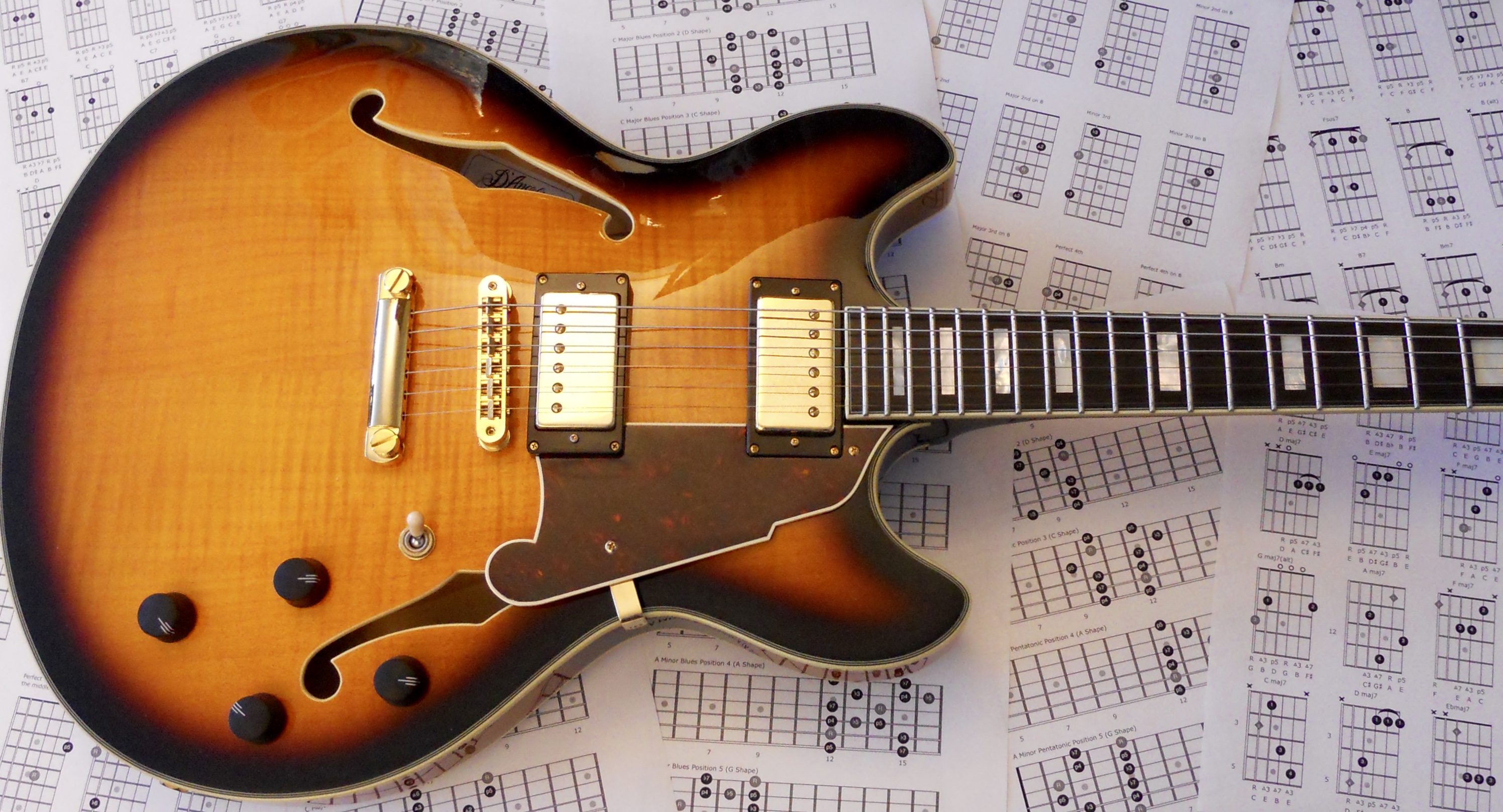
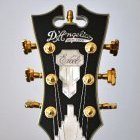
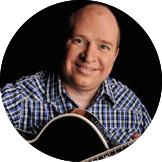
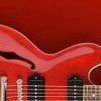

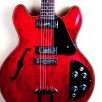
A Selection Of Guitar Books
in Guitar Open Talk
Posted
Yes ..., but not necessarily.
“Flight of the Bumblebee”
Classical Medley